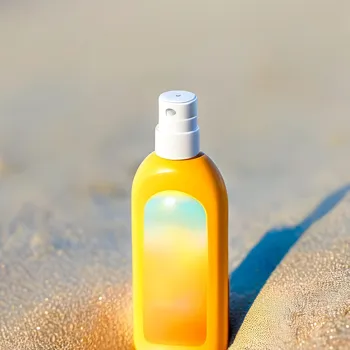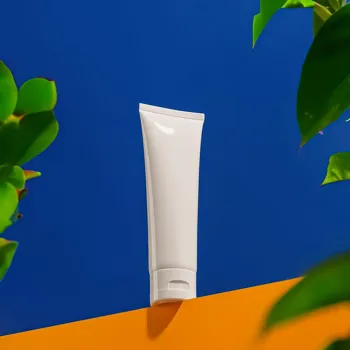Unlock the secrets of SPF: safeguard your skin year-round! Dive into the essentials of sun protection
Hello folks! As the weather keeps changing, from the scorching summer to the pleasant winter, one thing
remains constant: the need to protect our skin from the sun. Many of us think sunscreen is only for those super sunny days at the beach, but trust me, that's a big misconception!
Sun protection is a year-round affair, even when it's cloudy or raining. The sun's harmful ultraviolet (UV) rays can penetrate clouds and damage your skin, which may lead to early ageing and even increase the risk of skin cancer.
So, let's understand the importance of SPF and how to choose the right one for your skin. We'll also bust some myths and give you all the information you need to keep your skin healthy and glowing, no matter the season.
The sun emits two main types of UV rays that affect our skin
UVA and UVB. UVB rays are mostly responsible for sunburns and play a significant role in skin cancer development. UVA rays, on the other hand, penetrate deeper into the skin and contribute to premature ageing, wrinkles, and dark spots.

SPF, or Sun Protection Factor, primarily measures how well a sunscreen protects against UVB rays. So, a sunscreen with SPF 30 will theoretically allow you to stay in the sun 30 times longer than you could without it, before getting a sunburn.
However, it's not that simple, as everyone's skin is different. It's important to note that SPF doesn't tell you anything about UVA protection. For that, you need to look for "broad spectrum" sunscreens that protect against both UVA and UVB rays.
These sunscreens contain ingredients like zinc oxide or titanium dioxide. Using sunscreens can bring down skin cancer risk.
Choose SPF 30 broad-spectrum sunscreen for optimal protection
Choosing the right SPF can be a bit confusing, with so many options available in the market. Dermatologists generally recommend using a broad-spectrum sunscreen with an SPF of at least 30. This blocks about 97% of UVB rays.

Higher SPFs, like 50 or 100, offer slightly more protection, but the difference is minimal. No sunscreen can block 100% of UVB rays. It's best to choose a sunscreen that feels comfortable on your skin and that you'll actually use regularly.
Look for formulations that are non-comedogenic, meaning they won't clog your pores, if you have oily or acne-prone skin. If you take medications please consult with the dermatologist for the best products.
For dry skin, opt for creamy or hydrating sunscreens that contain moisturizing ingredients such as hyaluronic acid or ceramides. In case of children, they should be using only sunscreen specially for children.
Apply sunscreen correctly: use enough, reapply every 2 hours, avoid peak sun hours
Now, let's talk about how to apply sunscreen properly. Most people don't use enough sunscreen, which reduces its effectiveness. You should apply about one ounce (a shot glass full) to your entire body, including often-missed areas like your ears, the back of your neck, and the tops of your feet.
Don't forget your lips! Use a lip balm with SPF. It is pertinent here to emphasize that you should apply sunscreen 15-30 minutes before going outside to allow it to bind to your skin. Reapply sunscreen every two hours, especially after swimming or sweating.
Even if your sunscreen claims to be water-resistant, it's still important to reapply it frequently. Remember, sunscreen is only effective if you use it correctly and consistently. Most importantly avoid sun exposure between 10 AM to 4 PM due to harsh weather.
Use sunscreen and protective clothing, seek shade, mountain caution, meds sensitivity
Sunscreen is just one part of a comprehensive sun protection strategy. In addition to sunscreen, you should also wear protective clothing, such as long sleeves, pants, a wide-brimmed hat, and sunglasses. Seek shade whenever possible, especially during peak sun hours (usually between 10 a.m. and 4 p.

m.). Remember that the sun's rays are strongest at higher altitudes. So, you need to be extra careful when you are in the mountains. Even on cloudy days, up to 80% of the sun's UV rays can penetrate the clouds. So, you should still wear sunscreen even when it's overcast.
Be aware that certain medications and medical conditions can make your skin more sensitive to the sun.
Sun protection essential year-round for healthy skin
So, there you have it! Sun protection is not just for summer is necessary all round the year. By understanding the importance of SPF, choosing the right sunscreen, and using it correctly, you can protect your skin from the harmful effects of the sun and keep it healthy and glowing year-round.

Remember, consistency is key. Make sunscreen application a part of your daily routine, just like brushing your teeth. Your skin will thank you for it in the long run! Do a consult with your dermatologist for further clarity and suggestions.













